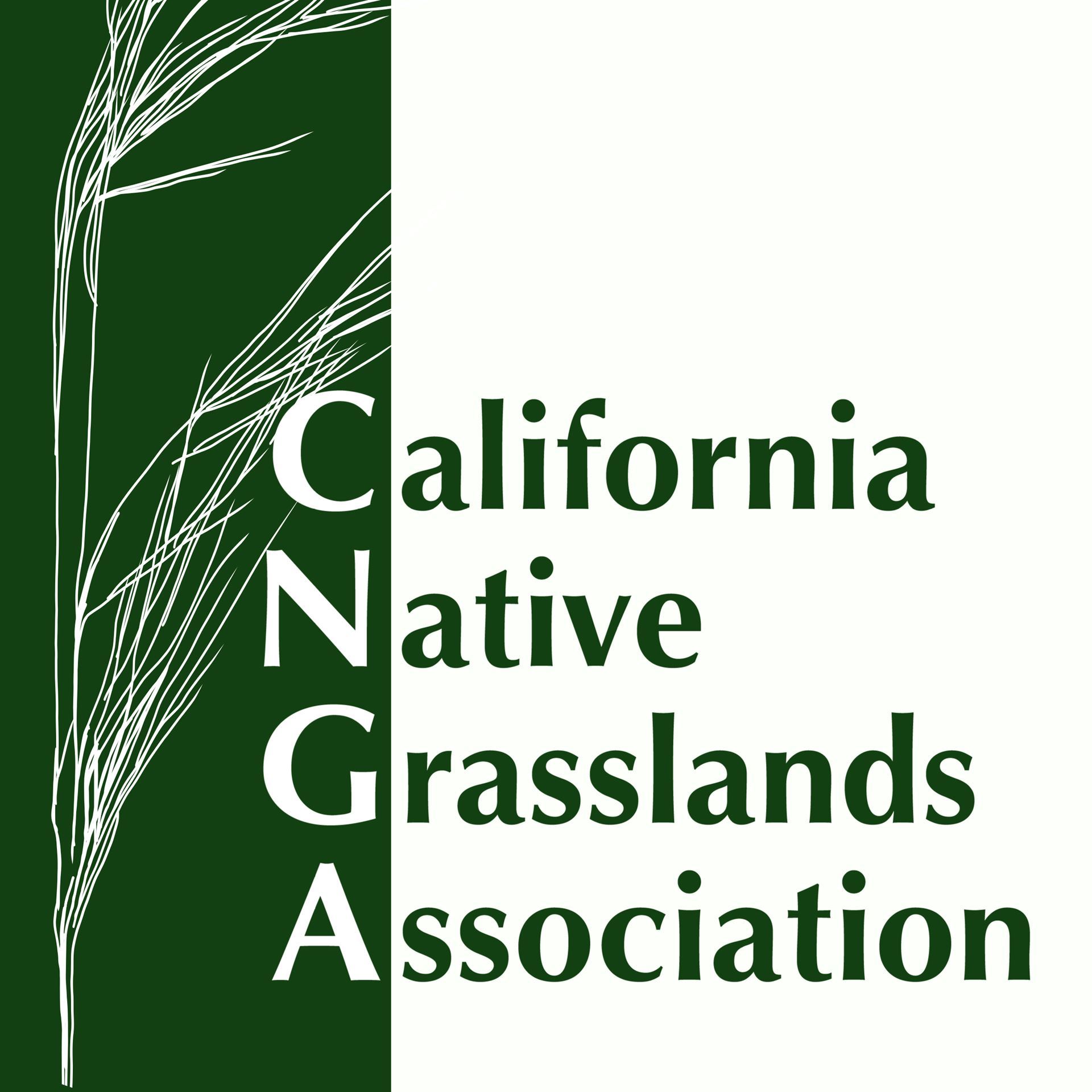California Native Grassland Association GRASS Award Speaker Series:
Jennifer Valadez & Ava-Rose Beech
Tuesday, November 12, 6 PM- 7 PM PDT
Join us for our CNGA’s virtual speaker series which showcases the amazing work undertaken in California Grasslands by a few of our Grassland Research Awards for Student Scholarship Winners.
There will be two 20-minute talks, with time for Q&A.
Members: Free Non-Members: $10 Non-Member Students: Free with Student ID
Jennifer Valadez, Project Manager, Fire Safe Council, Monterey County
Title: Effect of site age and grass species on soil carbon in restored California coastal prairie

Abstract: Grassland ecosystems are commonly overlooked in soil carbon storage efforts despite covering large portions of the terrestrial landscape and containing a meaningful part of the carbon worldwide. Increasing climate resilience through accumulating soil carbon in California coastal prairie is limited by current understandings of restoration within soil C stocks. Native bunch grasses are commonly planted as part of coastal prairie restoration efforts and are recognized for their substantial root systems, but there is limited information on their short and long-term effects on soil carbon accumulation. My project evaluated the soil carbon from restored sites differing in age from 4-12 years and grass species composition at the Younger Lagoon Reserve of the University of California, Santa Cruz. I compared mineral associated organic matter (MAOM) and particulate organic matter (POM), %C, %N, C:N, d13C, d15N in soils dominated by the native bunch grass Elymus triticoides and non-native annual grass species at sites initiated in 2011, 2013, 2015, and 2019. Grass type had no significant effect on any MAOM or POM variables measured. MAOM %C and C:N, and all POM variables except C:N were greater in older restored sites. SOM values, summed from MAOM and POM, ranged from 54.11 to 196.02 tCha-1 comparable to that of global grassland ecosystems. Wood mulching utilized by YLR as a restoration method could have increased soil C over time due to mulch degradation.
Bio: I am a recent graduate from UCSC in Environmental sciences where I focused on restoration and grasslands during my time as an undergraduate lab member. During my last year with the support of CNGA I was able to investigate my senior project that focused on soil carbon stocks within restored California coastal prairie. Further research is required to fully flesh out understanding of soil carbon and it’s accumulation in grassland ecosystems. Additionally, I have begun my professional career with the Fire Safe Council for Monterey County as a project manager to progress community fire mitigation and safety.
Ava-Rose Beech, UC Davis
Title: Fostering collaboration with Cooperative Extension and local ranchers to assess climate-smart ranching practices in California rangelands: Impacts on soil ecology
Abstract: Grazed grasslands (rangelands) comprise 40-50 % of all terrestrial land and play an integral role in global food security. As rain-irrigated systems, rangelands are highly vulnerable to drought. Numerous “climate-smart” ranching practices (e.g., soil amendments, reseeding) have been proposed as strategies to improve rangeland resilience to drought by enhancing key soil processes. The use of these practices in rangelands is still a novel strategy. Little is known about their impacts on soil microbial communities, which play a significant role in driving ecosystem responses to drought. To assess these questions, we partnered with local operators interested in integrating climate-smart practices in their ranching operations. UC Cooperative Extension (UCCE) advisor Scott Oneto and local cooperators worked to co-design and deploy a series of treatments, including compost application and range seeding. We then joined with a team of ranchers, and UCCE members to collect soils at four ranches across a gradient of soil productivity in Amador County, CA. We analyzed soil microbial communities via enzyme activity and phospholipid fatty acid biomarkers. Following data analysis, we will work with UCCE and ranchers to further understand how these results can inform practices that improve soil drought resilience, and forage productivity. Next steps in this project will include using surveys and workshops to assess potential barriers and challenges to adopting climate smart ranching strategies.
Bio: Ava-Rose is a PhD Student in the UC Davis Ecology Graduate Group advised by Dr. Leslie Roche in the UC Rangelands Lab. Her research focuses on studying the impacts of various rangeland management practices, and impacts of drought on soil ecology. She is interested in examining how soil microbial community composition and soil food webs dynamics can help ranchers cope with difficult challenges related to water scarcity and ecological drought stress. She is passionate about engaging in research that addresses priority concerns for California ranchers and local stakeholders.
Contact Justin Luong (jluong4@ucsc.edu)with any questions.
CNGA 2024 GRASS Award Speaker Series 2024 Schedule (Tuesdays, 6 - 7 pm)
- October 29 - Annie Taylor (The Nature Conservancy)
- November 12 - Jennifer Valadez (UCSC) & Ava-Rose Beech (UCD)
- November 19 - Carmen Ebel Watkins (U of Oregon)
- December 10 - Brooke Wainwright (UCD)
- Winter Intermission
- January 21 - Mathew Wells (Santa Monica Mountains NPS)
- January 28 - Sabela Vasquez-Rey (UCD)
Help Support Student Research - Donate to the GRASS Program
CNGA's GRASS Program:
- Focuses student research on important grassland-related questions.
- Inspires students to become more involved in California Grassland Conservation and Restoration.
- Trains future employees for your agency or company.
- Creates advocates for California Grasslands
Learn More About GRASS - Applications Accepted Nov 1 - Jan 31

